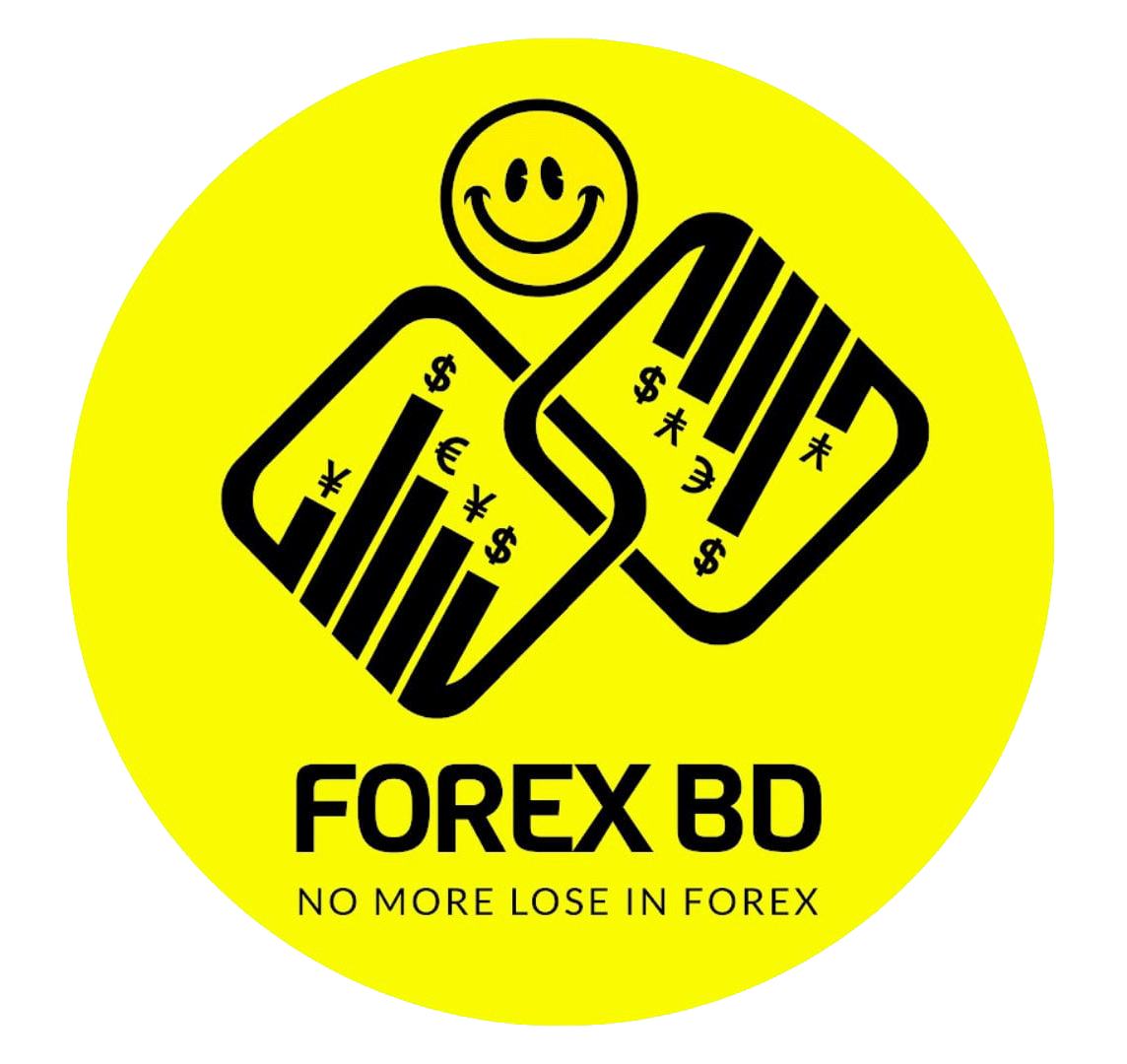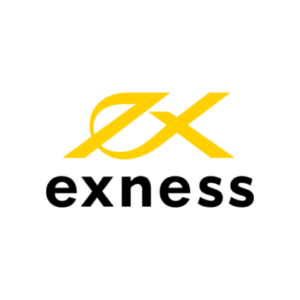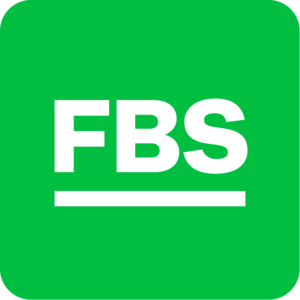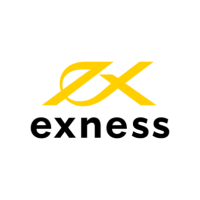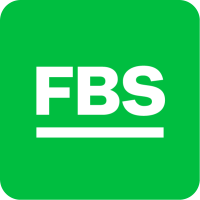Spread in Forex: What It Is and How to Manage It
I. Introduction
A. Definition of Forex
B. Brief explanation of Spread in Forex
II. Understanding Spread in Forex
A. Definition of Spread
B. Types of Spread
C. Calculation of Spread
D. Factors Affecting Spread
E. Importance of Spread in Forex
III. Advantages of Low Spread in Forex
A. Better Trading Opportunities
B. Increased Profit Potential
C. Reduced Trading Costs
IV. Choosing a Forex Broker with Low Spread
A. Factors to Consider
B. Top Forex Brokers with Low Spread
C. Tips for Choosing the Best Forex Broker
V. Common Spread Strategies in Forex
A. Scalping
B. Day Trading
C. Swing Trading
VI. Spread and Risk Management in Forex
A. Understanding Risk Management
B. Importance of Spread in Risk Management
C. Best Practices for Risk Management in Forex
VII. Spread and Forex Trading Psychology
A. Role of Psychology in Forex Trading
B. How Spread Affects Psychology in Forex Trading
C. Strategies for Managing Psychology in Forex Trading
VIII. Conclusion
IX. FAQs
Introduction
Foreign exchange or forex is the biggest financial market in the world, with trillions of dollars traded every day. Forex trading offers investors an opportunity to profit from currency price movements. One crucial aspect of forex trading that every trader should understand is spread. In this article, we will explain what spread is, how it works, and how to manage it to improve your trading performance.
Understanding Spread in Forex
Definition of Spread
Spread refers to the difference between the bid and ask prices of a currency pair. The bid price is the highest price that a buyer is willing to pay for a currency pair, while the ask price is the lowest price that a seller is willing to accept for the same currency pair. The spread is the broker’s commission or fee for executing the trade.
Types of Spread
There are two types of spread: fixed and variable. Fixed spread remains constant irrespective of market conditions, while variable spread changes according to market conditions. Variable spread is usually wider during periods of high market volatility.
Calculation of Spread
To calculate the spread, subtract the bid price from the ask price. For example, if the bid price for EUR/USD is 1.2000, and the ask price is 1.2005, the spread is 0.0005 or 5 pips.
Factors Affecting Spread
Several factors affect the spread in forex trading, including market volatility, liquidity, and the broker’s business model. Brokers that offer low spreads usually make money from other sources, such as trading commissions or markups.
Importance of Spread in Forex
Spread is a crucial factor in forex trading as it affects the profitability of trades. The wider the spread, the higher the trading costs, and the lower the potential profit. Therefore, it is essential to choose a forex broker with low spread to improve your trading performance.
Advantages of Low Spread in Forex
Better Trading Opportunities
Low spread provides better trading opportunities as it allows traders to enter and exit trades at a lower cost. This means that traders can open and close positions more frequently and take advantage of even the smallest price movements.
Increased Profit Potential
Low spread increases profit potential as traders can keep more of their profits. With a lower spread, traders need less price movement to break even and achieve a profit. This means that traders can make more profits with smaller price movements.
Reduced Trading Costs
Low spread reduces trading costs, making forex trading more affordable.
Choosing a Forex Broker with Low Spread
Factors to Consider
When choosing a forex broker with low spread, there are several factors to consider, including:
Regulation: Choose a broker that is regulated by a reputable authority, such as the Financial Conduct Authority (FCA) in the UK, the National Futures Association (NFA) in the US, or the Australian Securities and Investments Commission (ASIC) in Australia.
Trading Platform: Choose a broker that offers a user-friendly trading platform with advanced features, such as real-time charts, technical indicators, and risk management tools.
Account Types: Choose a broker that offers different account types with varying minimum deposit requirements and trading conditions.
Customer Support: Choose a broker that offers reliable customer support, such as live chat, email, and phone support, available 24/7.
Top Forex Brokers with Low Spread
Some of the top forex brokers with low spread include:
Pepperstone: Offers variable spreads from 0.0 pips on its Razor account and fixed spreads from 1.0 pips on its Standard account.
IC Markets: Offers raw spreads from 0.0 pips on its Raw Spread account and standard spreads from 1.0 pips on its Standard account.
XM: Offers variable spreads from 0.0 pips on its Zero account and spreads from 1.0 pips on its Standard account.
Tips for Choosing the Best Forex Broker
When choosing the best forex broker with low spread, consider the following tips:
Do your research and compare brokers’ trading conditions, spreads, and fees.
Read reviews and feedback from other traders to gauge the broker’s reliability and reputation.
Test the broker’s trading platform by opening a demo account before committing to a live trading account.
Common Spread Strategies in Forex
Scalping
Scalping is a popular forex trading strategy that involves opening and closing trades quickly to take advantage of small price movements. Scalpers look for currency pairs with low spreads and high liquidity to execute trades quickly and frequently.
Day Trading
Day trading is a forex trading strategy that involves opening and closing trades within the same trading day. Day traders look for currency pairs with low spreads and high volatility to take advantage of significant price movements.
Swing Trading
Swing trading is a forex trading strategy that involves opening trades that last several days to take advantage of medium-term price movements. Swing traders look for currency pairs with low spreads and stable trends to hold trades for a longer time.
Spread and Risk Management in Forex
Understanding Risk Management
Risk management is an essential aspect of forex trading as it helps traders to control their losses and protect their profits. Risk management involves setting stop-loss orders, using position sizing, and diversifying your portfolio.
Importance of Spread in Risk Management
Spread plays a crucial role in risk management as it affects the cost of executing trades. A wider spread means higher trading costs, which can increase the risk of losing money.
Best Practices for Risk Management in Forex
To manage risk effectively in forex trading, consider the following best practices:
Use stop-loss orders to limit your losses.
Practice proper position sizing to manage your risk exposure.
Diversify your portfolio by trading different currency pairs and using different trading strategies.
Spread and Forex Trading Psychology
Role of Psychology in Forex Trading
Psychology plays a critical role in forex trading as it affects traders’ decision-making processes, emotions, and behavior. Successful forex traders are disciplined, patient, and have a positive mindset.
How Spread Affects Psychology in Forex Trading
Spread affects traders’ psychology in forex trading by influencing their perception of market conditions and their trading performance. A wider spread can lead to increased anxiety, frustration and impulsivity, which can negatively affect traders’ decision-making processes and lead to poor trading performance.
Overcoming Negative Psychology in Forex Trading
To overcome negative psychology in forex trading, consider the following tips:
Maintain a positive mindset and focus on your long-term trading goals.
Stick to your trading plan and avoid impulsive decisions.
Practice risk management and use stop-loss orders to limit your losses.
Conclusion
Choosing a forex broker with low spread is essential for successful forex trading. When selecting a broker, consider factors such as regulation, trading platform, account types, and customer support. Some of the top forex brokers with low spread include Pepperstone, IC Markets, and XM. Spread strategies such as scalping, day trading, and swing trading can be used to take advantage of different market conditions. Risk management is crucial in forex trading, and spread plays a vital role in managing risk. Finally, psychology is a critical aspect of forex trading, and traders should work to maintain a positive mindset and practice disciplined trading habits.
FAQs
- What is a spread in forex trading?
A spread in forex trading refers to the difference between the bid and ask prices of a currency pair. It represents the cost of executing a trade and can vary between brokers and currency pairs.
- Why is spread important in forex trading?
Spread is important in forex trading as it affects the cost of executing trades, which can impact profitability and risk management.
- What is the best forex trading strategy for low spread?
The best forex trading strategy for low spread depends on the trader’s goals and risk tolerance. Scalping, day trading, and swing trading are all viable options for low spread trading.
- How can I manage risk in forex trading?
Risk management in forex trading involves using techniques such as stop-loss orders, proper position sizing, and portfolio diversification.
- How can I improve my forex trading psychology?
To improve your forex trading psychology, focus on maintaining a positive mindset, sticking to your trading plan, and practicing disciplined trading habits such as risk management and avoiding impulsive decisions.
Name
Details
Rating
Regulation: CySEC, FCA, DFSA, FSCA, FSA, CMA
Founded: 2008
Founders: Petr Valov, Igor Lychagov
Year Founded : 2008
Deposit Methods: VISA, MasterCard, Neteller, Skrill, WM, PM, Crypto (MORE)
Leverage: 1:30 | 1:500
Regulation: CySEC, FCA, DFSA, FSCA, FSA.
Min. Deposit: 5 US$
Min. Withdraw : 5 US$
HQ: Sydney, Australia
Platforms: MT4, MT5, ctrader, web trading
Found in: January 30, 2007
Deposit Methods: Bank Wire (BankTransfer), VISA, MasterCard, Neteller, Skrill, WM, PM, Crypto
Year Founded : 2010
Cryptocurrencies:
 Yes
YesDeposit Methods: Local Deposit, Bank Wire (BankTransfer), VISA, MasterCard, Neteller, Skrill, WM, PM, Crypto, USDT
Year Founded : 2010
Cryptocurrencies: (5+) Bitcoin, Litecoin, Ethereum
Deposit Methods: Local Deposit, Bank Wire (BankTransfer), VISA, MasterCard, Neteller, Skrill, WM, PM, Crypto, USDT (MORE)
Year Founded : 2009
Cryptocurrencies:



Deposit Methods: Bank Wire (BankTransfer/SWIFT), VISA, MasterCard, Alipay, Bitcoin, Bitcoin Cash, Boleto, Ether/Ethereum, Litecoin, Local Bank Deposits, M-Pesa, Mobile Money, Monero, PerfectMoney, Ripple, WebMoney
Year Founded : 2009
Cryptocurrencies:



Deposit Methods: Local Deposit, Bank Wire (BankTransfer), VISA, MasterCard, Neteller, Skrill, WM, PM, Crypto, USDT
Year Founded : 2009
Cryptocurrencies:



Deposit Methods: Bank Wire (BankTransfer/SWIFT), VISA, MasterCard, Alipay, Bitcoin, Bitcoin Cash, Boleto, Ether/Ethereum, Litecoin, Local Bank Deposits, Mobile Money, PerfectMoney, WebMoney, USDT
Year Founded : 2011
Cryptocurrencies: (25+) Bitcoin, Litecoin, Ethereum
Deposit Methods: Bank Deposit, VISA, awepay, Bitcoin, FasaPay, Local Bank Deposits, Local Bank Transfers, Neteller, paytm, Skrill, UnionPay, USDT
Leverage: 1:20 | 1:500
Regulation: CySEC, FCA, DFSA, FSCA, FSA.
Min. Deposit: 50 US$
Min. Withdraw : 50 US$
HQ: Australia, Cyprus, and the UK.
Platforms: MT4, cTrader, web trading
EAs/Robots: ✅ Yes | News Trading: ✅ Yes | Scalping: ✅ Yes
Cryptocurrencies: 20+) Bitcoin, Litecoin, Ethereum
Deposit Methods: Local Deposit, Bank Wire (BankTransfer), VISA, MasterCard, Neteller, Skrill, Crypto. USDT
Leverage: 1:20 | 1:500
Regulation: CySEC, FCA, DFSA, FSCA, FSA.
Min. Deposit: 100 US$
Min. Withdraw : 100 US$
HQ: Cyprus, the UK, Australia, and the United States.
Platforms: MT4, cTrader, web trading
EAs/Robots: ✅ Yes | News Trading: ✅ Yes | Scalping: ✅ Yes
Cryptocurrencies: 20+) Bitcoin, Litecoin, Ethereum
Deposit Methods: Local Deposit, Bank Wire (BankTransfer), VISA, MasterCard, Neteller, Skrill, Crypto. USDT
Leverage: 1:20 | 1:500
Regulation: CySEC, FCA, DFSA, FSCA, FSA.
Min. Deposit: 50 US$
Min. Withdraw : 50 US$
HQ: Australia, Cyprus, and the UK.
Platforms: MT4, cTrader, web trading
EAs/Robots: ✅ Yes | News Trading: ✅ Yes | Scalping: ✅ Yes
Cryptocurrencies: 20+) Bitcoin, Litecoin, Ethereum
Deposit Methods: Local Deposit, Bank Wire (BankTransfer), VISA, MasterCard, Neteller, Skrill, Crypto. USDT
Year Founded : 2010
Cryptocurrencies:



Deposit Methods: Local Deposit, Bank Wire (BankTransfer), VISA, MasterCard, Neteller, Skrill, WM, PM, Crypto, USDT
A Forex broker is a financial services company that provides traders with access to the foreign exchange market. The primary function of a Forex broker is to facilitate the buying and selling of currencies by acting as an intermediary between the trader and the market ( Forex BD / BD Forex / ForexBD / ForexBDLTD / Forex bd LTD / @forexbd )..
Forex brokers offer traders a variety of services, including trading platforms, market analysis, and educational resources. They also provide access to leverage, which allows traders to control larger positions with a smaller amount of capital.
Forex brokers can operate in different ways, such as market makers, which set their own bid and ask prices and take the opposite side of their clients’ trades, or as agency brokers, which pass their clients’ orders directly to the market without any intervention.
Choosing a reliable and trustworthy Forex broker is important for traders to ensure that they receive fair and transparent pricing, access to a range of financial instruments, and adequate customer support ( Forex BD / BD Forex / ForexBD / ForexBDLTD / Forex bd LTD / @forexbd )..
Forex brokers play an important role in the foreign exchange market by providing liquidity and enabling traders to participate in the market with ease. Forex brokers offer a wide range of services and tools to traders, including:
Trading Platforms: Forex brokers provide traders with access to trading platforms that allow them to place trades, analyze the market, and manage their trading accounts.
Market Analysis: Forex brokers offer traders access to market analysis, including news, research, and economic data. This can help traders make informed decisions about when to enter or exit the market.
Educational Resources: Forex brokers often provide educational resources, such as webinars, videos, and tutorials, to help traders improve their trading skills and knowledge.
Leverage: Forex brokers offer traders access to leverage, which allows traders to control larger positions with a smaller amount of capital. However, it’s important to note that leverage can increase both potential profits and losses.
Customer Support: Forex brokers provide customer support to help traders with any questions or issues they may have ( Forex BD / BD Forex / ForexBD / ForexBDLTD / Forex bd LTD / @forexbd )..
When choosing a Forex broker, traders should consider factors such as the broker’s reputation, regulation, trading conditions, fees and commissions, and customer support. It’s important to choose a broker that is reliable, transparent, and offers competitive pricing and trading conditions.
Forex brokers provide traders with access to various types of trading platforms, each with its own unique features and advantages. Here are some of the most common types of Forex broker platforms:
MetaTrader 4 (MT4): MT4 is one of the most popular Forex trading platforms, used by millions of traders worldwide. It is known for its user-friendly interface, extensive charting tools, and support for automated trading through Expert Advisors (EAs) ( Forex BD / BD Forex / ForexBD / ForexBDLTD / Forex bd LTD / @forexbd )..
MetaTrader 5 (MT5): MT5 is the newer version of MT4 and offers additional features and improvements, such as more advanced charting tools, additional order types, and support for more financial instruments.
cTrader: cTrader is a trading platform that offers advanced charting tools, support for automated trading, and fast order execution. It is known for its user-friendly interface and customization options.
WebTrader: WebTrader is a browser-based trading platform that allows traders to access the market from any device with an internet connection. It is a popular choice for traders who prefer a simple and easy-to-use platform ( Forex BD / BD Forex / ForexBD / ForexBDLTD / Forex bd LTD / @forexbd )..
Mobile Trading Platforms: Forex brokers also offer mobile trading platforms that allow traders to access the market and manage their positions from their smartphones or tablets. These platforms typically offer a range of features, including real-time quotes, charts, and news updates.
When choosing a Forex broker platform, it’s important to consider factors such as ease of use, charting tools, order types, automated trading options, customization options, and compatibility with your trading style and strategy. Ultimately, the best platform for you will depend on your individual needs and preferences as a trader.
Forex brokers can be categorized into different types based on their business model and the services they offer to their clients. Here are some of the most common types of Forex brokers ( Forex BD / BD Forex / ForexBD / ForexBDLTD / Forex bd LTD / @forexbd ). :
Dealing Desk (DD) Brokers: Dealing Desk brokers, also known as market makers, act as counterparties to their clients’ trades. They provide liquidity to the market by taking the opposite side of their clients’ trades, and may also offer fixed spreads, guaranteed stop-loss orders, and other risk management tools.
No Dealing Desk (NDD) Brokers: No Dealing Desk brokers do not act as counterparties to their clients’ trades, but instead route their orders directly to liquidity providers, such as banks, financial institutions, and other brokers. NDD brokers typically offer variable spreads and faster order execution speeds than DD brokers.
Electronic Communication Network (ECN) Brokers: ECN brokers are similar to NDD brokers, but instead of routing orders to a single liquidity provider, they connect their clients to a network of liquidity providers, which compete to offer the best bid and ask prices. ECN brokers typically charge a commission for their services, but offer some of the tightest spreads and fastest order execution speeds in the market.
Straight Through Processing (STP) Brokers: STP brokers are similar to NDD brokers, but instead of routing orders directly to liquidity providers, they use automated systems to execute orders based on pre-defined trading rules. STP brokers may offer variable or fixed spreads, and may charge a commission or markup on their services.
Hybrid Brokers: Hybrid brokers combine elements of different business models, such as acting as both a market maker and an ECN broker, or offering both fixed and variable spreads. Hybrid brokers may offer a range of services and account types to meet the needs of different types of traders.
When choosing a Forex broker, it’s important to consider the broker’s business model and the services they offer, as well as their reputation, regulation, and customer support. The best broker for you will depend on your individual needs and trading style, as well as the trading conditions and fees offered by the broker.
Forex trading is a popular financial activity that involves buying and selling currencies to profit from the fluctuations in exchange rates. As with any financial activity, it is essential to choose a reputable and regulated broker to ensure the safety of your funds and a fair trading environment. In this article, we will discuss some of the top regulated forex broker houses.
Online forex trading payment methods refer to the various payment options available for forex traders to deposit or withdraw funds from their trading accounts. In the world of forex trading, payment methods play a vital role in facilitating smooth transactions, and it is important to choose a secure and reliable payment method that suits your needs.
Like, Share & Subscribe to Our Official Sites
Contact with Us :
Copyright © 2023 Forex BD
Risk Warning: Trading on financial markets carries risks. Contracts for Difference (‘CFDs’) are complex financial products that are traded on margin. Trading CFDs carries a high level of risk since leverage can work both to your advantage and disadvantage. As a result, CFDs may not be suitable for all investors because you may lose all your invested capital. You should not risk more than you are prepared to lose. Before deciding to trade, you need to ensure that you understand the risks involved and take into account your investment objectives and level of experience.
Disclaimer : Forexbd.ltd is not encouraging anyone to do forex/stock trading, as there are investments and financial risks involved. ForexBD channel or videos are educational and informative. Before deciding to invest in the forex market, you should carefully consider your investment objectives, level of experience, and risk appetite.
#ForexTrading #ForexMarket #ForexBroker #ForexSignals #ForexAnalysis #ForexEducation #ForexPlatform #ForexTools #ForexStrategy #ForexTradingTips #ForexInvesting #ForexNews #CurrencyTrading #OnlineTrading #TradingSoftware #TechnicalAnalysis #FundamentalAnalysis #RiskManagement #MarketResearch #TradingCommunity #ForexTradingSignals #ForexTradingSystem #ForexMarketAnalysis #ForexMarketNews #ForexMarketResearch #ForexTradingStrategies #ForexTrader #ForexTradingSoftware #ForexTradingCourse #ForexTradingForBeginners #ForexTradingPlatform #ForexTradingEducation #ForexTradingAcademy #ForexTradingOnline #ForexTradingCommunity #ForexTradingCharts #ForexTradingIndicators #ForexTradingAccount #ForexTradingCoach #ForexTradingRobot
